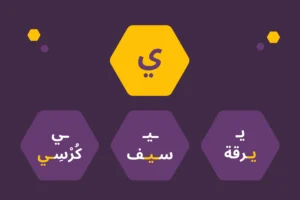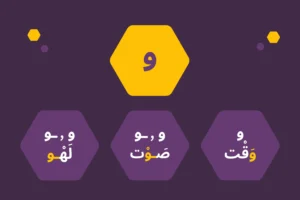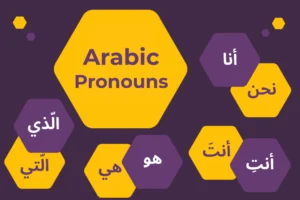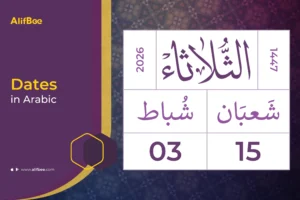Express Possibility in Arabic
Have you ever wondered how to express possibility in Arabic?
In this post, we will learn different ways to say “It’s possible” in Arabic through real-life situations and examples. We will also look at other similar structures in Arabic and understand them in different contexts. In the end, we will provide you with exercises to put what you learned into practice and ensure a complete understanding of the new Arabic phrases.
Are you ready?
It’s possible to
من الممكن أن
Whenever you’d like to indicate to someone the possibility of an action, you can use the phrase “مِنَ المُمْكن أن” which translates to “It’s possible to” in English. The word “مُمْكِن” in Arabic means “possible”, and the preposition “مِنَ” translates to the impersonal “it” in English.
Take the following examples:
Examples
أمثلة
It’s possible to achieve your goals.
من الممكن أن تحقق أهدافك.
It’s possible to learn a new language.
من الممكن أن تتعلّم لغةً جديدةً.
It’s possible to become a doctor.
من الممكن أن تصبح طبيبًا.
It’s possible to leave early today.
من الممكن أن تغادر باكرًا اليوم.
It is worth noting that the expression “من الممكن أن” requires the use of a present verb after it. In the above examples, we use the present form of the verbs: “تحقق” – “ تتعلم” – “تصبح” – “تغادر”
It/We can
يُمْكن
A variation of the noun “مُمْكن” can give us a similar structure in Arabic. For example, we can use the verb “يُمْكن” which can translate into a more direct sentence in English. Notice the following examples:
Examples
أمثلة
We can attend the conference on Friday.
يُمْكننا أن نحضر المؤتمر يوم الجمعة.
The situation can change at any moment.
يُمكن أن تتغيّر الأوضاع في أيّ لحظة.
We can adapt to the changes in the market by diversifying our products.
These expressions are usually used to give permission, to indicate an action is probable, or to predict an event that is likely to happen. The different uses of these phrases are highlighted in the following examples:
Use
English sentence
Arabic sentence
Giving permission
It’s possible to leave early today.
من الممكن أن تغادر باكرًا اليوم.
من الممكن أن تحقق أهدافك.
Prediction of an event
The situation can change at any moment.
Indicating an action is probable
It’s possible to become a doctor.
من الممكن أن تصبح طبيبًا.
It’s easy to
من السّهل
Another phrase to talk about “possibility” is “من السهل” which translates to “It’s easy to ..” in English. This phrase indicates the ease with which something can happen, so it also implies the possibility of something. The root word “سَهْلٌ” is an adjective that means “easy”. Let’s look at the following examples:
Examples
أمثلة
It’s easy to forget new words.
من السّهل نسيان الكلمات الجديدة.
It’s easy to find a job in Cairo.
من السّهل العثور على وظيفةٍ في القاهرة.
It’s easy to make new friends.
من السّهل تكوين صداقاتٍ جديدةٍ.
It’s easy to forget someone’s name if you don’t use it frequently.
Notice that after this phrase, we use a noun in Arabic. In the above sentences, we used “نسيان” – “العثور” – تكوين” and they are translated to “Forgetting” – “Finding” – “Making” respectively. As is clear in the English examples, the noun in Arabic is sometimes translated to “infinitive with to” in English.
It’s normal to
من الطّبيعي أن
The third phrase we are going to learn today is “من الطبيعي أن” and it also expresses the possibility of events because they happen naturally or due to the ease with which they happen. Notice the following examples:
Examples
أمثلة
It’s normal to make mistakes sometimes.
من الطّبيعي أن نرتكب أخطاءً في بعض الأحيان.
It’s normal to need help from others sometimes.
من الطّبيعي أن تحتاج إلى مساعدةٍ من الآخرين أحيانًا.
It’s normal to feel sad when a good book ends.
من الطّبيعي أن تشعر بالحزن عند الانتهاء من قراءة كتابٍ جيد.
It’s normal to feel nervous before a big presentation.
من الطّبيعي أن تشعر بالتّوتر قبل إلقاء عرض تقديمي هامّ.
Now, let’s look at this phrase in context and see how it can be used in a real-life conversation.
Bilal and Layla are colleagues preparing for a big presentation and they have the following conversation:
Bilal
Are you ready for tomorrow’s presentation?
هل أنتِ مستعدّة للعرض التقديمي الذي ستقدمينه غدًا؟
هل أنتِ مستعدّة للعرض التقديمي الذي ستقدمينه غدًا؟
Are you ready for tomorrow’s presentation?
Layla
I worked hard all day yesterday, but I’m a bit worried.
عملت عليه بجدٍ طوال يوم أمس لكني قلقة بعض الشيء
عملت عليه بجدٍ طوال يوم أمس لكني قلقة بعض الشيء
I worked hard all day yesterday, but I’m a bit worried.
Bilal
It’s normal to feel nervous before a big presentation but stay calm, and you’ll do great.
من الطبيعي أن تشعري بالتوتر قبل إلقاء عرض تقديمي هامّ
من الطبيعي أن تشعري بالتوتر قبل إلقاء عرض تقديمي هامّ
It’s normal to feel nervous before a big presentation but stay calm, and you’ll do great.
Layla
You’re right. Thank you very much.
أنت محقٌّ، شكرًا جزيلًا
أنت محقٌّ، شكرًا جزيلًا
You’re right. Thank you very much.
I can
أَسْتَطيعُ أَن
The fourth phrase we’re going to learn today is “أستطيع أن” which indicates the possibility of something happening because of having a certain ability. The word “أستطيع” is a singular verb, the noun of which “استطاعة” translates to “ability.” Let’s look at the following examples:
Examples
أمثلة
I can go to the match tonight.
أستطيع أن أذهب إلى المباراة الليلة.
I can finally find time to learn Arabic.
أخيرًا أستطيع أن أجد بعض الوقت لتعلُّم اللغة العربية.
I can learn from my mistakes.
أستطيع أن أتعلّم من أخطائي.
For example, in the first sentence, “أستطيع أن أذهب إلى المباراة الليلة” we have the implication that the speaker has the ability to go to the match because maybe he/she has some free time. In other words, it is now possible for him/her to go. Like the first phrase, after using “أستطيع أن” we need to use a present verb in Arabic, such as أتعلم and أذهب in the above examples.
We have to pay attention to something very important when using the fourth structure, which is the fact that this is only shown in examples with the singular 1st person pronoun “أستطيع” and it could be used with both male and female. For example, with the plural 1st person pronoun, we say “نستطيع أن”.
Final word
I hope you found the information in this blog post helpful.
Download our app (and get 14 day free trial today!) to get access to many useful exercises, and read more blogs with useful everyday expressions here.








